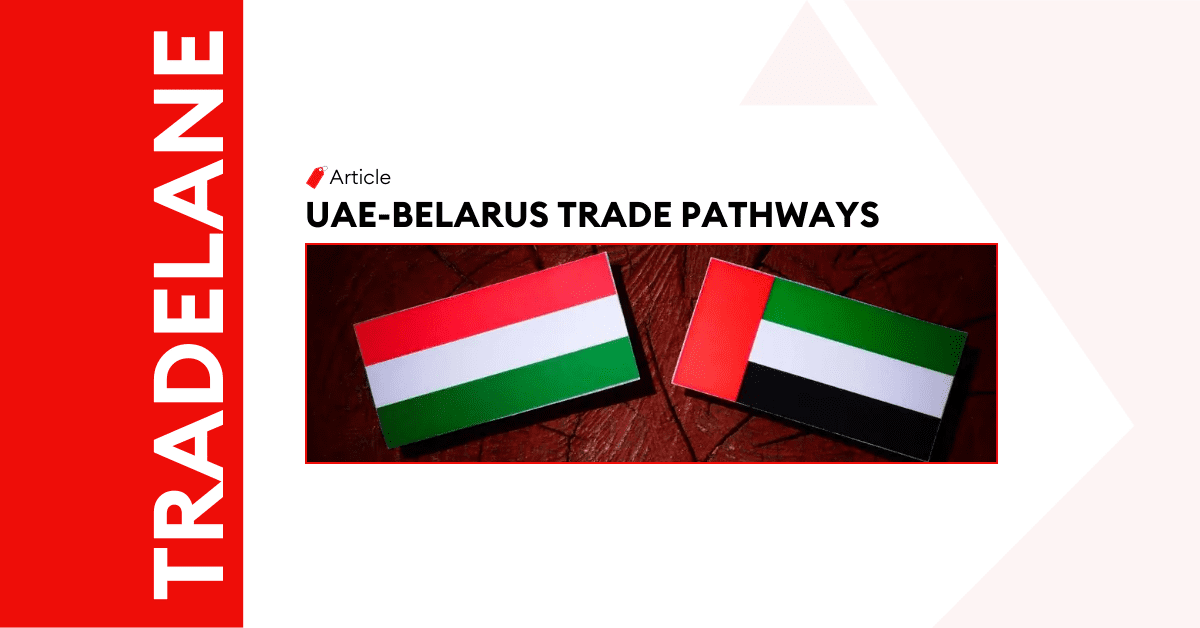
UAE-Belarus Trade Pathways – Your Essential Guide
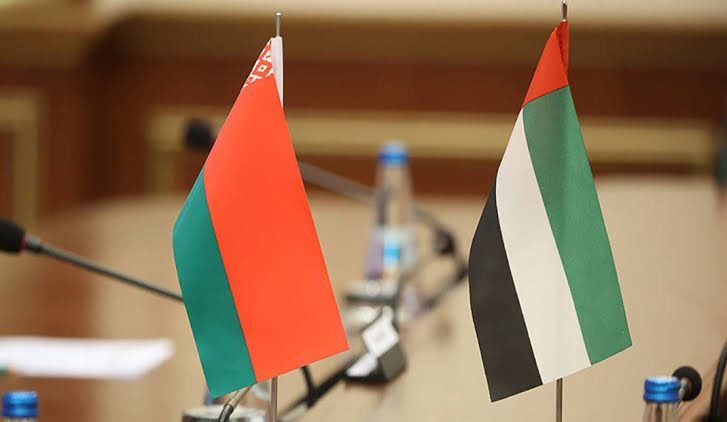
Introduction
The UAE-Belarus trade lane is vital today, bridging the dynamic markets of the Gulf region and Eastern Europe. It provides the UAE with access to the Eurasian Economic Union (EAEU) markets while Belarus benefits from the UAE’s global logistics operations connecting to Asia, Africa, and beyond.
Economically, this bilateral trade relationship enhances the resilience and diversification of both economies. For the UAE, engaging with Belarus supports its broader goal of becoming a global trade leader, reducing reliance on oil exports, and promoting high-tech industries. For Belarus, the UAE offers a gateway to non-traditional markets, helping to offset the impacts of regional economic challenges and sanctions.
UAE and Belarus - A Comparative Economic Snapshot
A Deep Dive into the UAE Economy
Top Industries Powering the UAE's Economic Growth
The United Arab Emirates (UAE) is one of the Middle East’s most advanced and diversified economies. Today, its economy results from significant growth in its oil and non-oil sectors. While the oil and gas industry remain a cornerstone, contributing around 30% of the GDP, the country has successfully diversified its economic base.
The UAE’s economic strength is anchored in:
- Oil and Gas: Despite diversification efforts, the UAE remains the world’s seventh-largest oil producer.
- Tourism: Dubai and Abu Dhabi are global holiday destinations, with tourism accounting for over 12% of the UAE’s GDP.
- Aviation and Logistics: The UAE sits in a strategic location and operates on a world-class infrastructure. Emirates and Etihad Airlines, alongside major ports like Jebel Ali, enhance the nation’s connectivity.
- Real Estate and Construction: Iconic projects and a booming market continue to boost the real estate sector, especially in Dubai and Abu Dhabi.
A Closer Look to UAE's Major Export Commodities
The UAE’s top exports are petroleum and petroleum products. Additionally, the country is a major exporter of gold, aluminum, and electronic equipment.
The UAE's Major Trade Relationships
The UAE has established itself as a leading global trading nation. Its major trading partners include China, India, Saudi Arabia, and the United States.

An In-Depth Look at Belarus's Economic Landscape
Key Insights into Belarusian Economy
Belarus is a developing economy in Eastern Europe with a projected GDP growth of 2.1% in 2024 following a 3.9% increase in 2023. The country’s GDP in 2023 crossed $70 billion. The economic structure features state control and subsidies, particularly in sectors inherited from the Soviet era.
Why Invest in Belarus?
Belarus offers several attractive investment opportunities for UAE investors:
- Strategic Location: Positioned as a gateway between the EU and the EAEU.
- Industrial Base: Established manufacturing and industrial sectors.
- Government Incentives: Favorable policies and incentives for foreign investors.
Introduction to Trade Dynamics Between UAE and Belarus
Top Industries Shaping UAE-Belarus Trade
Bilateral trade volumes between these two nations have been growing steadily due to complementary economic needs and a shared interest in expanding their global trade networks. The industries driving trade between the UAE and Belarus are:
- Petrochemical Industry
- Machinery and Equipment
- Agriculture
Key Trade Commodities Between UAE and Belarus
The primary commodities traded between the UAE and Belarus are:
- UAE Exports to Belarus: Primarily include electronics, luxury goods, and petrochemical products.
- Belarus Exports to UAE: Include machinery, agricultural products, and petrochemical products.
Top Players in the UAE-Belarus Trade Network
The UAE’s main trading partners include China, India, Saudi Arabia, and the United States. Meanwhile, Belarus maintains strong trade relationships with Russia, Germany, and Poland.
Transportation Methods and Shipping Pathways
Navigating Transport Corridors
Key Transport Corridors to Belarus
The primary transport corridors connecting the UAE and Belarus include:
- Sea-Rail Corridor via the Black Sea: Goods are shipped from UAE ports to the Black Sea ports, then transported via rail through Ukraine and Poland into Belarus.
- The Middle Corridor: This route connects the Caspian Sea with the Black Sea through Central Asia and the Caucasus, serving as an alternative to routes traversing Russia.
- INSTC Corridor: The International North-South Transport Corridor connects through Iran and Azerbaijan to Russia, and from there into Belarus.
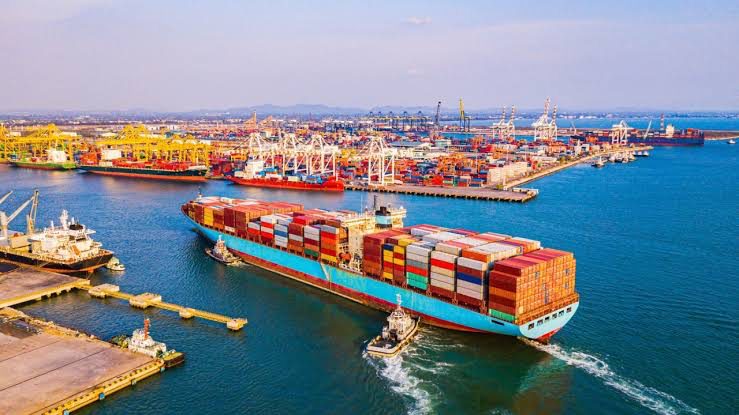
Vital Trade Routes Between UAE and Belarus
Sea Freight Details
Shipping from Dubai to Belarus is facilitated through strategic shipping routes that connect the Middle East with Eastern Europe, vital for the smooth flow of goods between these regions. Given Belarus’s landlocked geography, the country relies heavily on a combination of sea and land transport for importing and exporting goods.
Goods typically move from major UAE ports like Jebel Ali or Khalifa Port to intermediary transshipment hubs in the Black Sea and Baltic Sea regions, such as Odessa (Ukraine), Constanța (Romania), or the Port of Klaipėda (Lithuania). From these ports, cargo is transported into Belarus via rail or road networks.
These shipping routes usually transit through the Suez Canal, with transit times ranging from 15 to 30 days depending on weather conditions, the specific port of call, and any required transshipment. Shipping from Dubai to Belarus benefits from the UAE’s world-class ports and maritime infrastructure, providing crucial access to these sea routes and ensuring efficient movement of large volumes of cargo to Belarus and beyond.
Air Freight Details
Air freight to Belarus offers fast and reliable transport of high-value and time-sensitive goods. Given the distance between the two countries and the increasing demand for just-in-time delivery, Al Sharqi offers Air Cargo Charter Service to Belarus for efficient trade activities.
While sea and land transport are suitable for bulk goods, air freight caters to industries that rely on quick turnover, such as electronics, pharmaceuticals, and perishables. The growing e-commerce sector has further fueled demand for air cargo service to Belarus, with businesses and consumers expecting rapid delivery times globally.
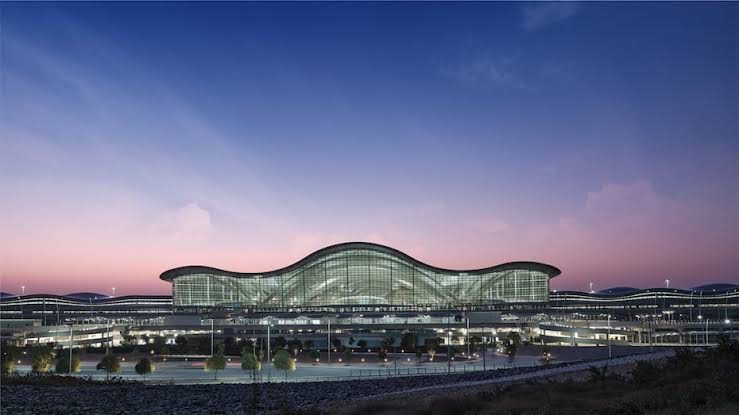
Major Ports in UAE-Belarus Trade Lane
Jebel Ali, being the UAE’s largest and busiest port, is a critical hub for containerized cargo going to Europe. Khalifa Port is famous for its advanced infrastructure and efficient cargo handling. Zayed Port and Port Rashid, while primarily serving regional and cruise traffic, also supply cargo to Belarus.
Belarus, though landlocked, leverages ports in neighboring countries. For example, Klaipėda in Lithuania and Odessa in Ukraine are crucial transit points for Belarusian imports and exports.
Key Airports and Airlines
The primary airports delivering air freight to Belarus are Dubai International Airport (DXB) and Zayed International Airport (AUH) in the UAE, along with Minsk National Airport (MSQ) in Belarus. Dubai International Airport is the busiest in terms of cargo operations, with Emirates SkyCargo airlines leading the market. AUH is also supported by Etihad Cargo, which offers extensive global reach. Meanwhile, Minsk National Airport handling the majority of Belarus’s air cargo.
Depending on the service and route, transit times for air freight cargo from Belarus to Dubai can range from 6 to 12 hours, significantly reducing the lead time compared to sea and land transport.
Navigating Customs and Regulatory Requirements
A Guide to Belarus Customs Regulations
Essential Export Documentation and Procedures
Belarus follows a structured customs regime that is closely aligned with its membership in the Eurasian Economic Union (EAEU). So, the country adheres to a common customs code along with member states, including Russia, Kazakhstan, Armenia, and Kyrgyzstan.
Key aspects of Belarusian customs regulations include the classification of goods, valuation methods, and tariff rates, which are standardized across the EAEU. When exporting cargo from Belarus to Dubai, businesses must provide detailed documentation, including a commercial invoice, bill of lading, packing list, and certificate of origin.
Essential Import Regulations in Belarus
Import regulations in Belarus are governed by the EAEU customs code, which sets out the duties and taxes applicable to goods entering the country. Import tariffs in Belarus vary depending on the classification of goods, with rates ranging from 0% to 15%. Additionally, value-added tax (VAT) applies on most imports at a standard rate of 20%, with some goods having a reduced rate of 10%.
Belarus also enforces strict controls on specific categories, such as food products, pharmaceuticals, and chemicals, which may require additional certifications or licenses.
Import Documentation and Requirements
To import goods into Belarus, businesses need to submit several key documents, including an import declaration, commercial invoice, bill of lading, packing list, and, where applicable, certificates of conformity or sanitary certificates. These documents follow EAEU standards and must accurately reflect the goods being imported for smooth customs clearance.
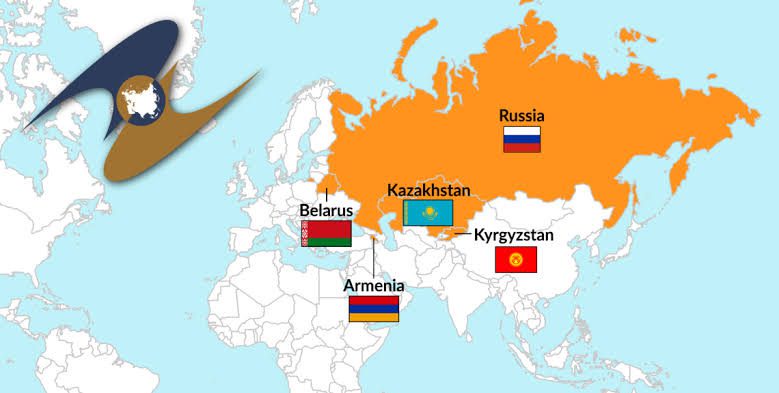
A Guide to UAE Customs Compliance
Documentation Required for Export
The customs process in the UAE is managed by the Federal Customs Authority (FCA) for compliance with national regulations and international agreements. For exporters, the Mirsal 2 electronic customs clearance system simplifies the submission and processing of customs documents and reduces the time and cost associated with exporting goods.
When exporting cargo to Belarus, you will provide:
- Commercial Invoice: Details of the goods, including quantities and prices.
- Certificate of Origin: Confirms the origin of the goods, which may affect tariff rates.
- Bill of Lading: Provides details about the shipment and serves as a receipt for the goods.
- Packing List: Itemizes the contents of each package in the shipment.
- Export Declaration: Submitted via the Mirsal 2 system for customs clearance.
UAE Export Regulations
Exporters must adhere to specific rules regarding restricted and prohibited items, which could threaten national security or public health. Additionally, certain items may require export licenses or permits, particularly for strategic goods such as weapons or dual-use technologies.
UAE Import Regulations
The UAE’s import regulations are equally stringent, focusing on protecting local markets and ensuring the safety of imported goods. Importers must ensure that all goods meet the UAE’s safety, health, and quality standards.
Certain goods, such as food products, pharmaceuticals, and cosmetics, require specific certifications and may be subject to additional inspections. Tariffs and duties generally apply to imported goods, with rates depending on the goods type and their country of origin.
Import Documentation and Requirements
To import goods into the UAE from Belarus, the following documents are required:
- Import Declaration: Filed electronically via the Mirsal 2 system to initiate the customs clearance process.
- Commercial Invoice: Provides details of the transaction between the exporter and the importer.
- Bill of Lading: Outlines the shipment’s details, serving as a transport contract and receipt.
- Certificate of Conformity: Ensures the imported goods meet UAE standards, particularly for regulated products.
- Packing List: Details the shipment’s contents for customs inspection
Exploring Trade Opportunities and Challenges of the UAE and Belarus Trade
Exploring Trade Opportunities
High-Growth Industries to Watch
The UAE’s free zones and investment-friendly policies attract Belarusian companies seeking to expand their reach in the Middle East. Conversely, Belarus provides access to the EAEU markets for Emirati goods and services. Moreover, both countries are investing in sustainable development, opening opportunities in green technologies, renewable energy, and infrastructure projects.
Belarus’s well-established industrial base, particularly in machinery, chemicals, and agricultural products, aligns with the UAE’s strong demand for such goods. Additionally, Belarus’s expertise in IT and its growing tech sector offers avenues for collaboration.
Trade Agreements Enhancing Bilateral Trade

Notably, the agreements within the framework of the EAEU have facilitated easier access to markets and streamlined customs procedures. Additionally, the UAE and Belarus have signed MoUs focused on economic cooperation, investment protection, and joint ventures in technology and innovation.
Emerging Markets in UAE-Belarus Trade
Information technology and biotechnology sectors are thriving from Belarus investing heavily to drive future growth. In the UAE, artificial intelligence, fintech, and renewable energy are gaining momentum, supported by the Vision 2030 strategy for economic diversification and innovation.
Addressing Trade Challenges
Language and Cultural Barriers
Belarus predominantly uses Russian and Belarusian, while Arabic and English are the UAE’s primary languages. This language barrier, coupled with differing business practices and cultural expectations, can lead to misunderstandings or delays in trade negotiations and operations.
Political Instability
Political instability in Belarus, partly influenced by regional tensions and its relations with Russia, is also significant. Sanctions imposed by Western countries on Belarus due to its political alignment with Russia can complicate trade logistics and financial transactions, affecting the confidence of UAE businesses considering investments or partnerships in Belarus.
Infrastructure Challenges
While Belarus serves as a transit hub in Eastern Europe, its infrastructure requires modernization to meet international standards. Issues such as outdated road and rail networks and limited access to major seaports can delay shipments and increase costs.
For businesses and policymakers, overcoming these challenges will involve investing in language and cultural training, careful analysis and planning, and employing targeted investments and partnerships.
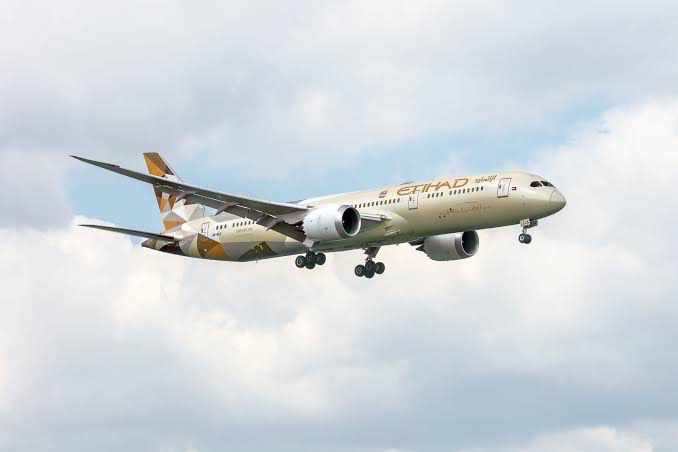
Optimized Freight Services and Strategic Value from Al Sharqi in UAE-Belarus Trade
At Al Sharqi, we pride ourselves on delivering end-to-end logistics services for diverse business needs, particularly in the UAE-Belarus trade lane. Our services are built on a foundation of reliability, efficiency, and a deep understanding of regional and global trade dynamics.
Our ocean freight services cater to various shipping needs, from Full Container Loads (FCL) to Less Than Container Loads (LCL), providing flexible and cost-effective options for your cargo. For time-sensitive shipments, our air freight services deliver the speed and security you need, with a network that spans key global trade routes. Our strategic partnerships with major carriers allow us to provide competitive rates and superior cargo service to Belarus.
Special Services for Cargo to Belarus
We understand that shipping to Belarus requires specialized services, and that’s where our expertise shines. Al Sharqi offers tailored solutions for cargo moving from Dubai to Belarus, managing everything from customs brokerage to final delivery.
Our Air Cargo Charter Service to Belarus caters to businesses needing dedicated air freight options. This service is perfect for large, high-value, or time-critical shipments, offering flexibility and meeting tight deadlines. With our deep market knowledge and strong logistics network, we ensure that your cargo reaches its destination efficiently and securely, allowing you to focus on growing your business.
Ready to take your business to the next level?
At Al Sharqi, we offer tailored logistics solutions that ensure your cargo reaches its destination on time, every time. Whether you need reliable freight forwarding, specialized air freight to Belarus, or end-to-end supply chain management, we’ve got you covered.
Don’t leave your logistics to chance—partner with a trusted leader in the industry. Get in touch now and let’s grow your business together!
Conclusion
The UAE-Belarus trade lane promises continued growth, driven by mutual investments in infrastructure, technology, and sustainable industries. Both nations are actively seeking stronger economic ties, and as global dynamics shift, this trade corridor will experience increased activity.
Majorly, global businesses connect to the Eurasian Economic Union (EAEU) and the Gulf Cooperation Council (GCC) markets. Investment opportunities are therefore abundant, particularly in logistics, technology, and green energy. By capitalizing on these areas, shipping from Dubai to Belarus will become a thriving trade route offering long-term business development.
FAQ's
The primary goods exported from Belarus to the UAE include machinery, chemical products, foodstuffs like dairy and meat products, and industrial equipment.
Businesses in the UAE can access new markets within the Eurasian Economic Union (EAEU) to diversifying their supply chains and leverage Belarus’s industrial expertise.
Infrastructure limitations in Belarus, such as outdated road and rail networks, and geopolitical issues can affect trade routes. Efficient coordination between sea, air, and land transport overcomes these obstacles and ensures smooth trade operations.
Yes, the UAE and Belarus have signed several trade agreements and Memorandums of Understanding (MoUs) that facilitate easier market access, streamlined customs procedures, and enhanced economic cooperation.
Both nations are investing in technology, renewable energy, and advanced manufacturing to diversify their economies, reduce dependency on traditional industries, and boost innovation-led growth.
Related Articles
Exploring the Booming UAE-Indonesia Economic Relations
The economic relations between the United Arab Emirates (UAE) and Indonesia have been flourishing in
Comprehensive Guide on USA-UAE Economic Relationship
Introduction The United Arab Emirates (UAE) has been a central player in the realm of international
The UAE and Saudi Arabia – Economic Powerhouses on the Rise
The bilateral trade relationship between the United Arab Emirates (UAE) and Saudi Arabia is characte




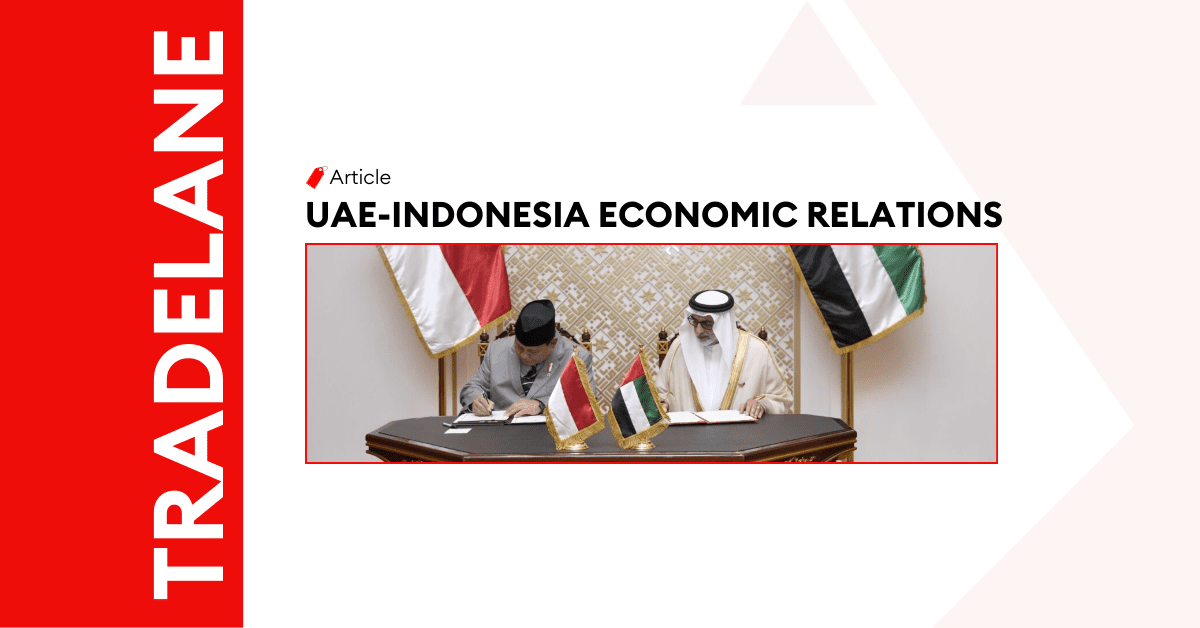
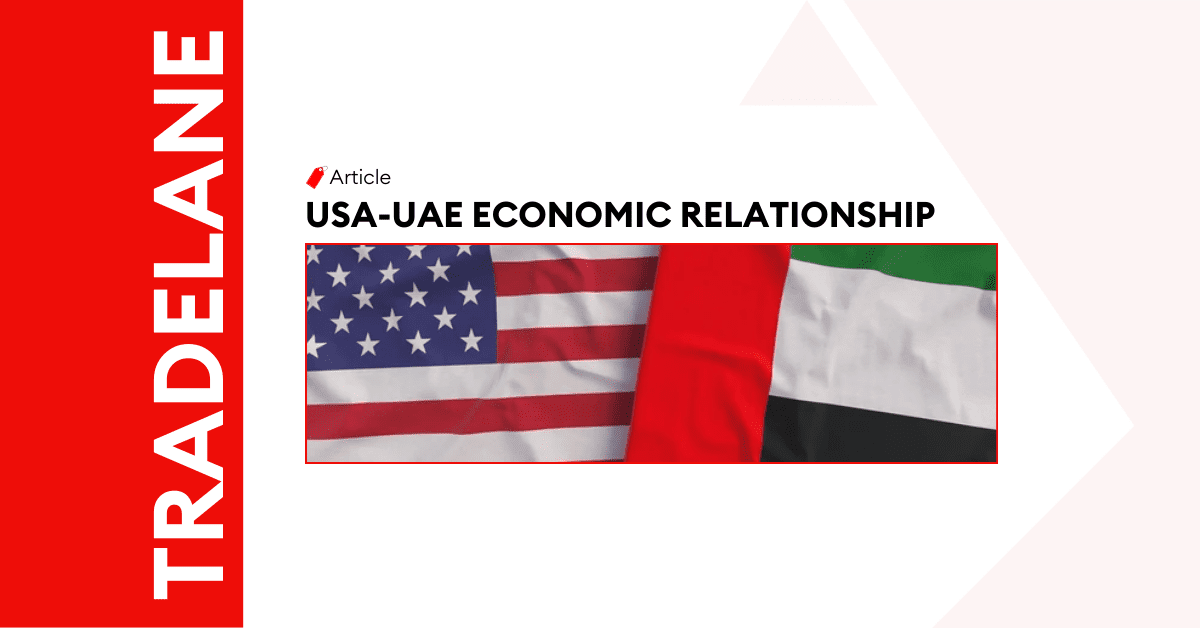
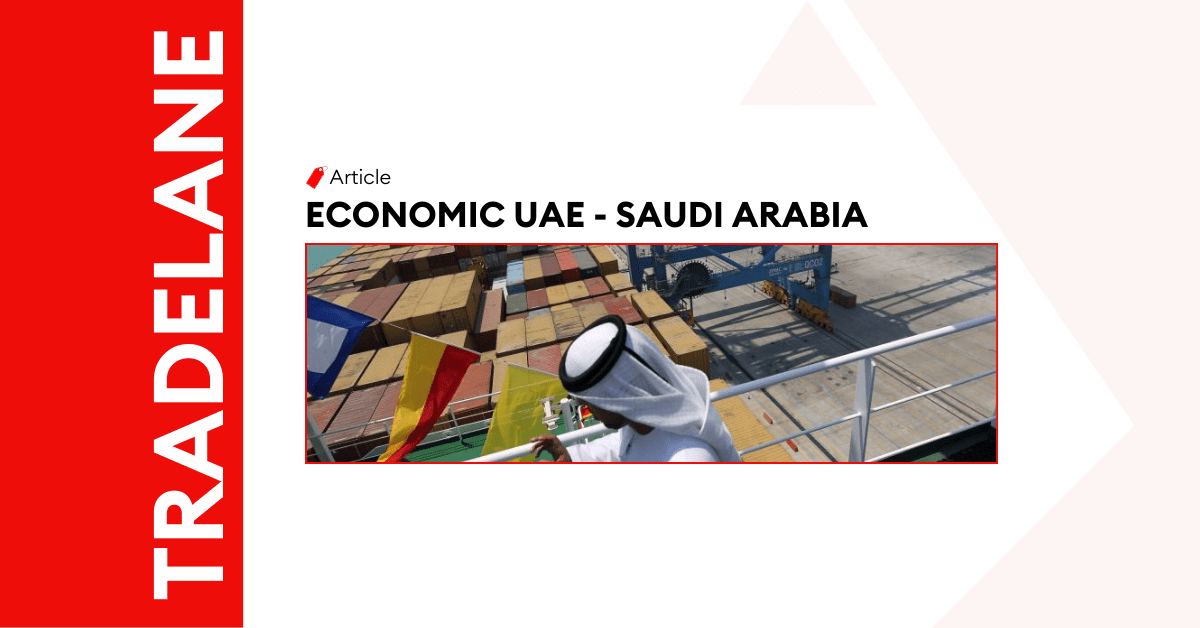
Post a comment
You must be logged in to post a comment.